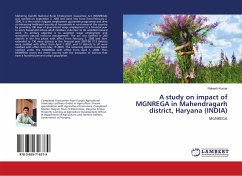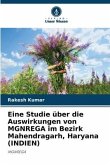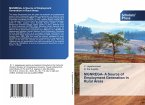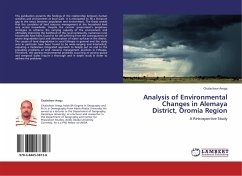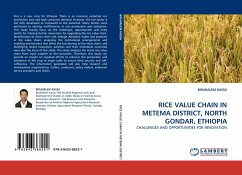Mahatma Gandhi National Rural Employment Guarantee Act (MGNREGA) was notified on September 7, 2005 and came into force from February 2, 2006. It is the world's biggest employment guarantee programme and aims at enhancing livelihood security of households in rural areas of the country by providing 100 days of guaranteed wage employment in a financial year to every household whose adult members volunteer to do unskilled manual work. Its primary objective is to augment wage employment and strengthen natural resource management. The act was notified in 200 districts in the first phase with effect from February 2, 2006 and then extended to 130 more districts in the financial year 2007-08 (113 districts were notified with effect from April 1 2007, and 17 districts in UP were notified with effect from May 15 2007). The remaining districts have been notified under the MGNREGA with effect from April 1, 2008. Thus MGNREGA covers the entire country with the exception of districts that have a hundred percent urban population.
Bitte wählen Sie Ihr Anliegen aus.
Rechnungen
Retourenschein anfordern
Bestellstatus
Storno

